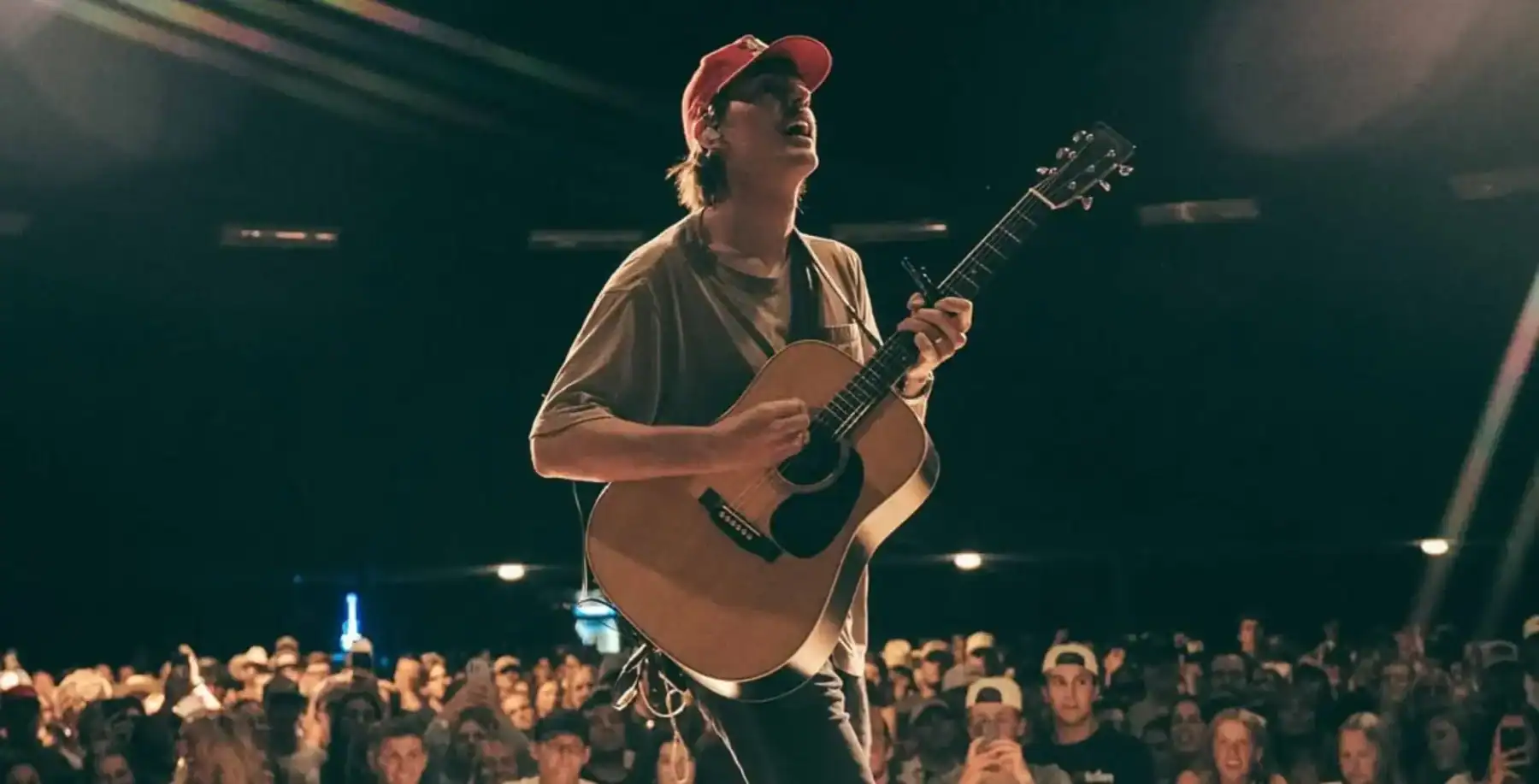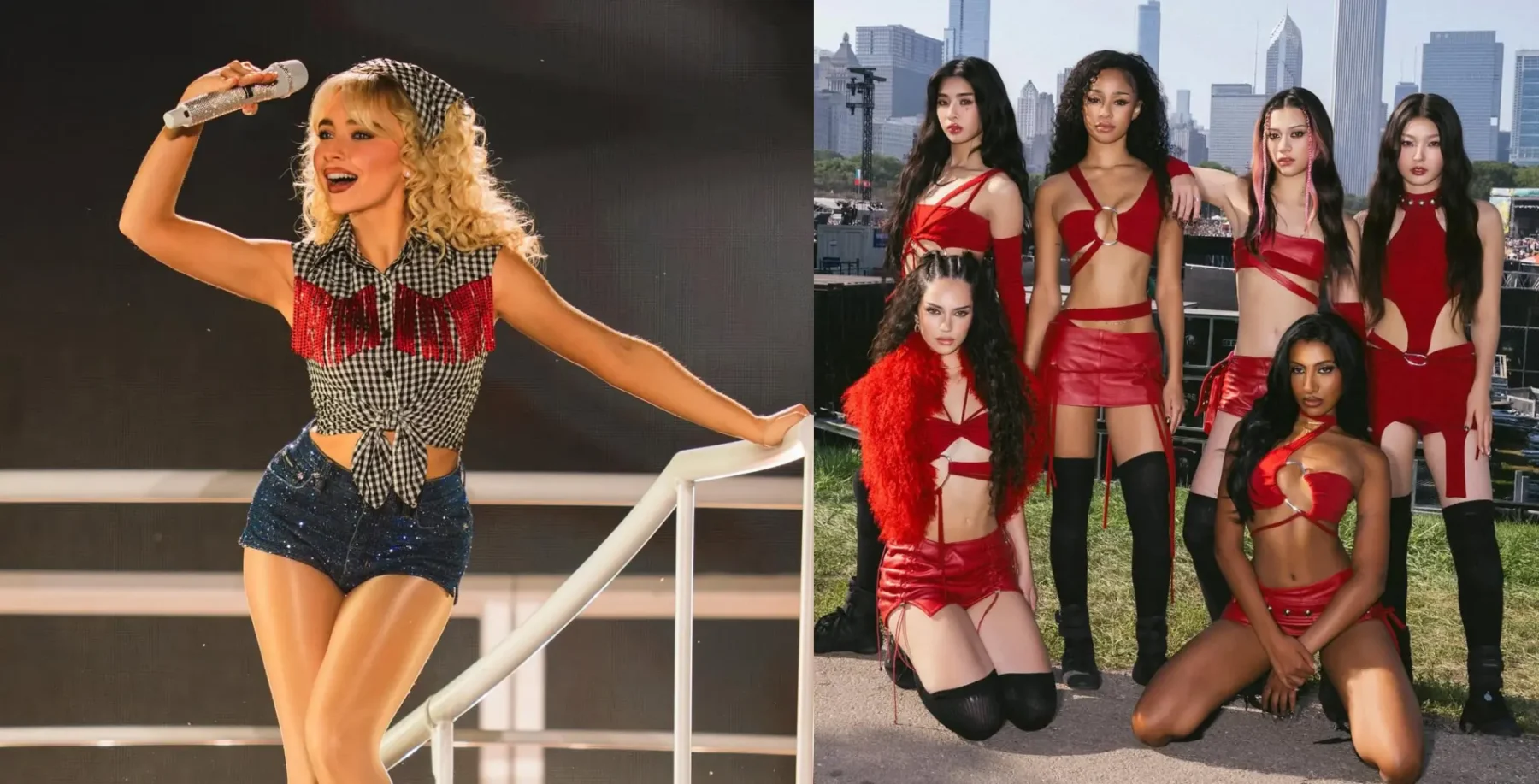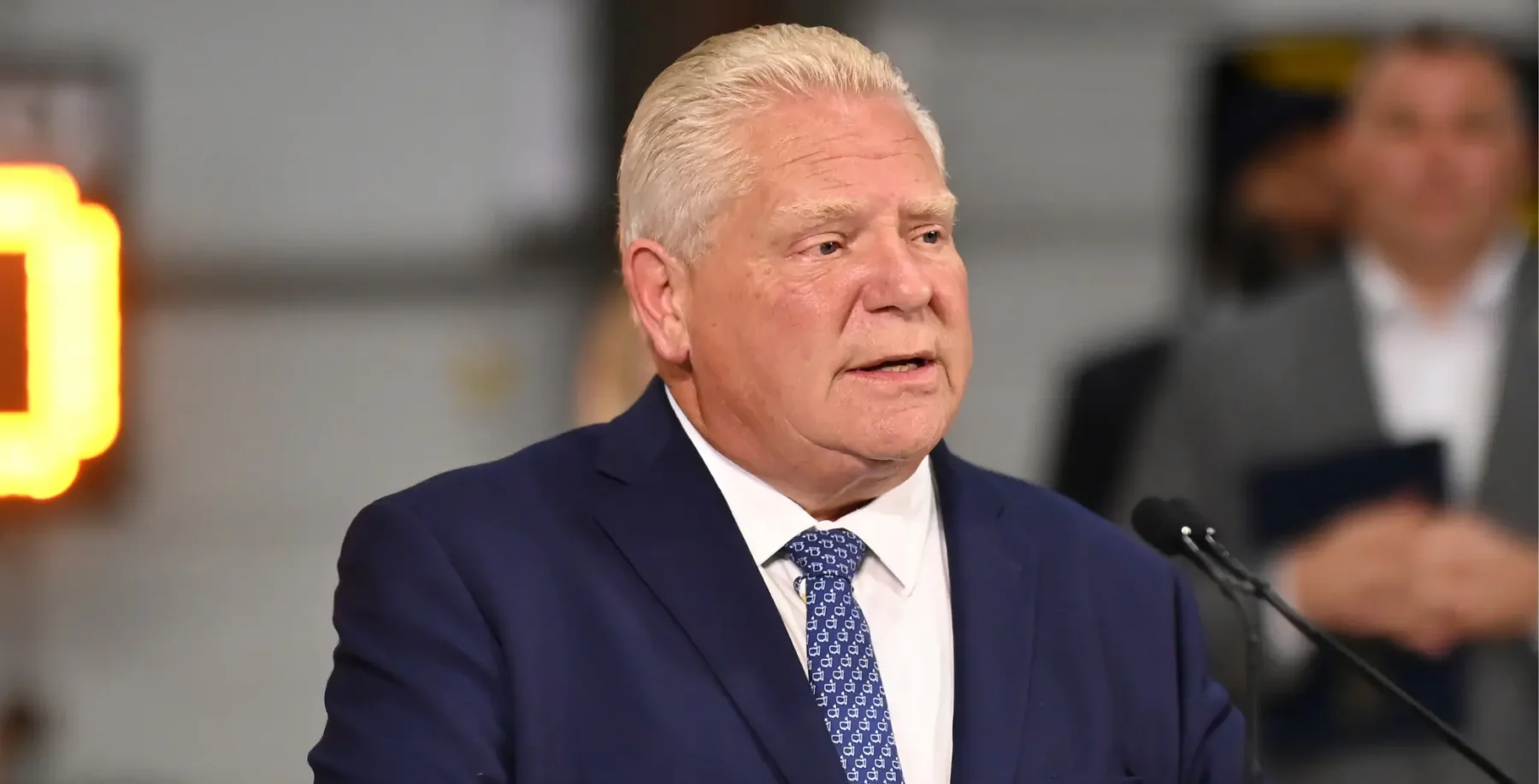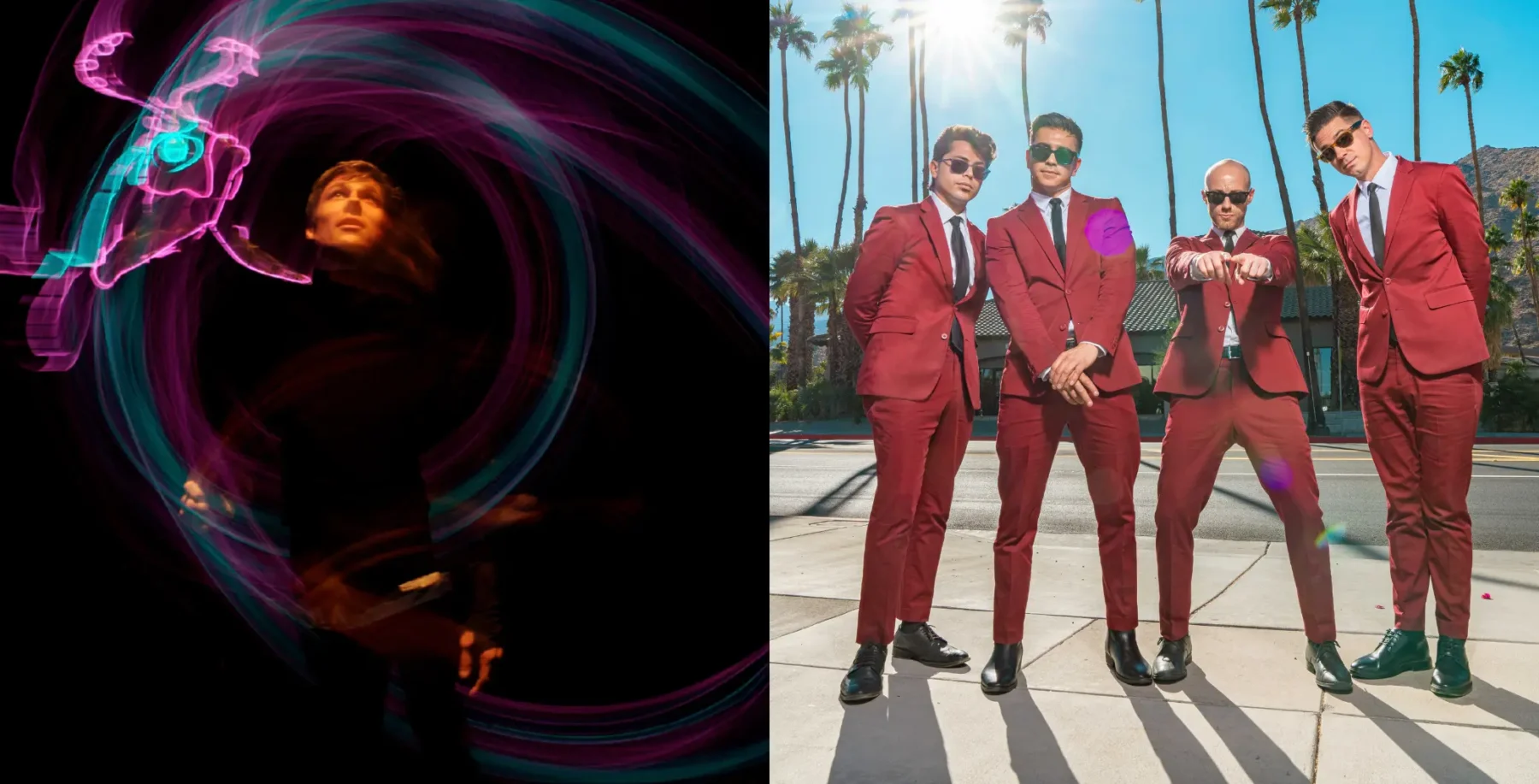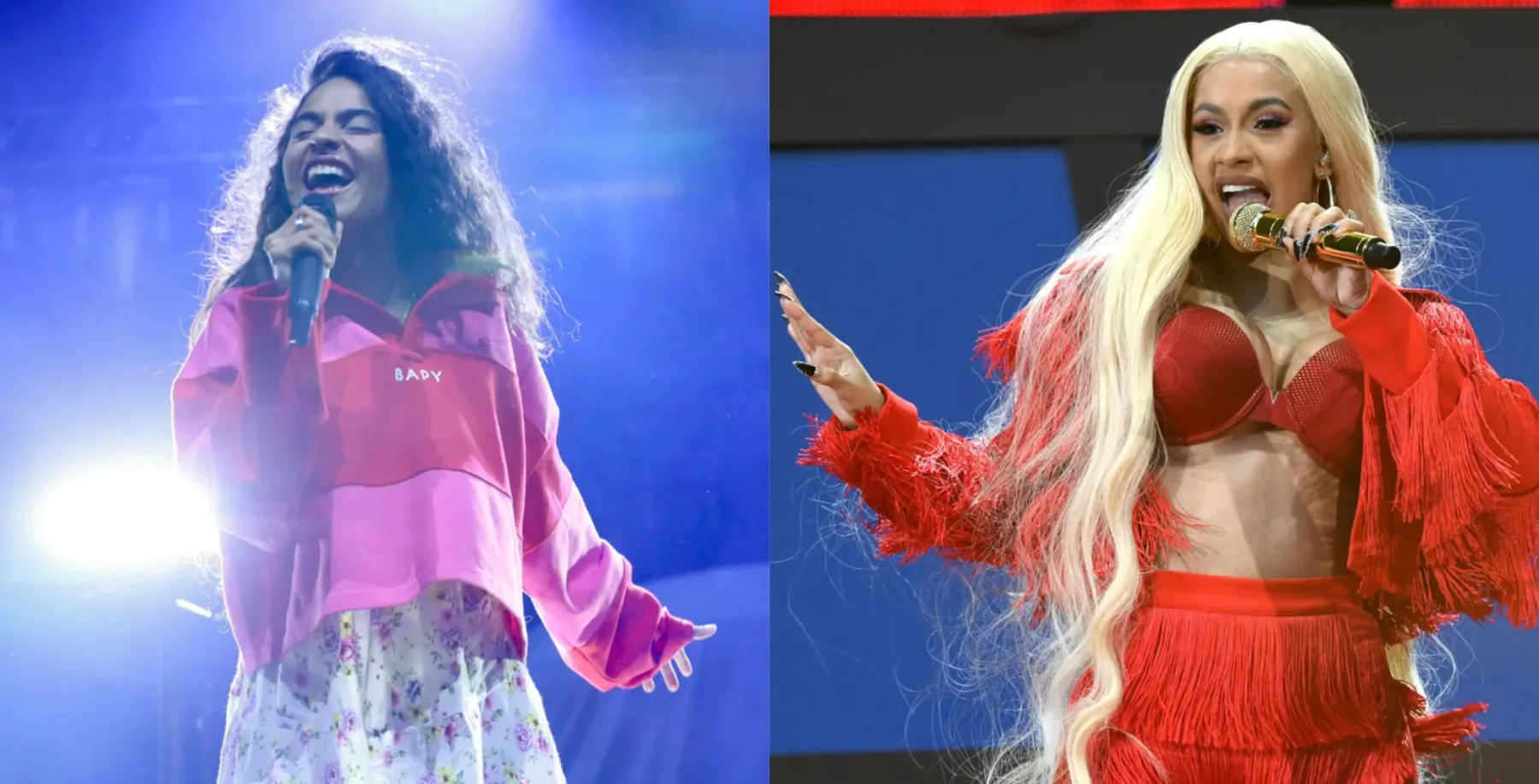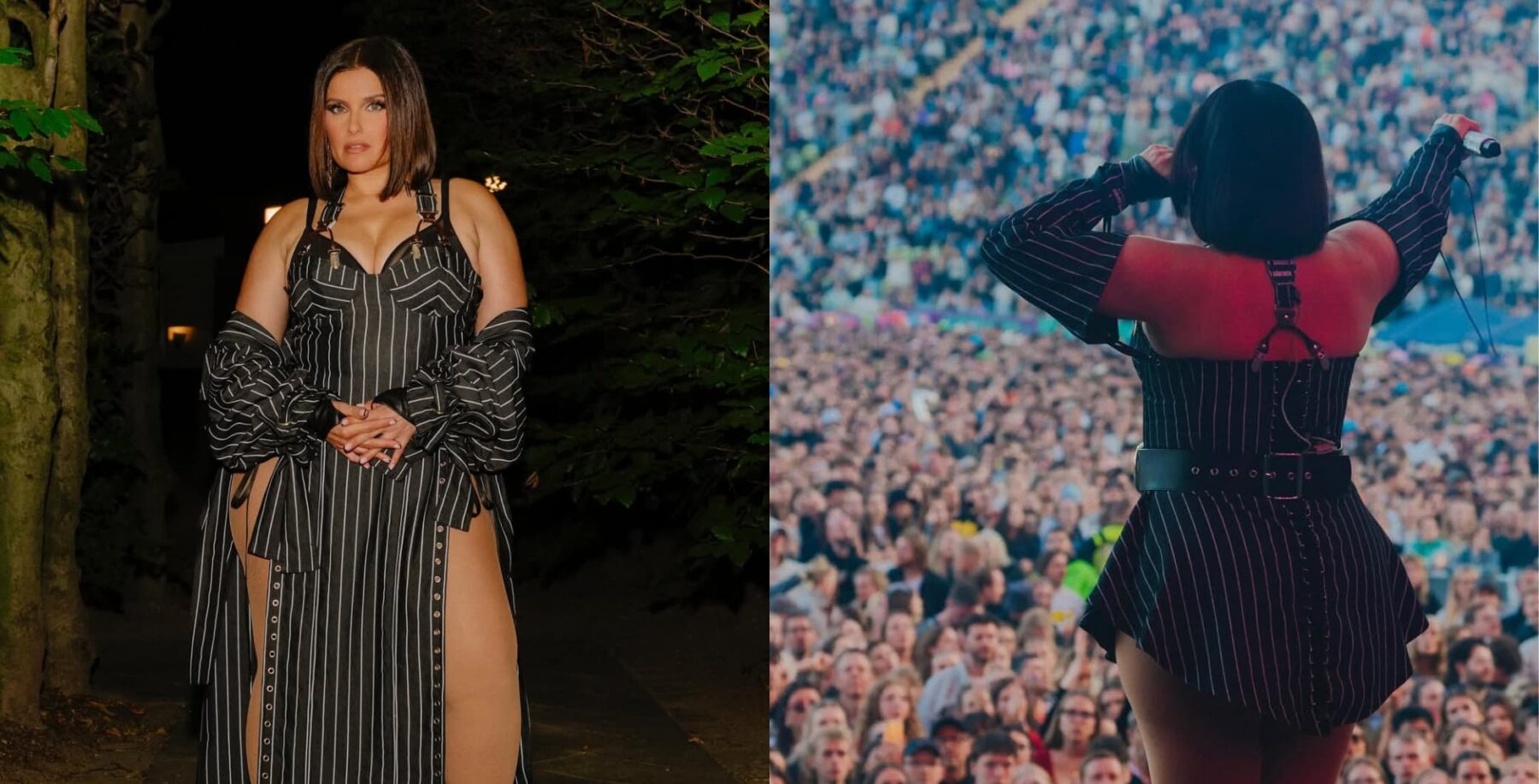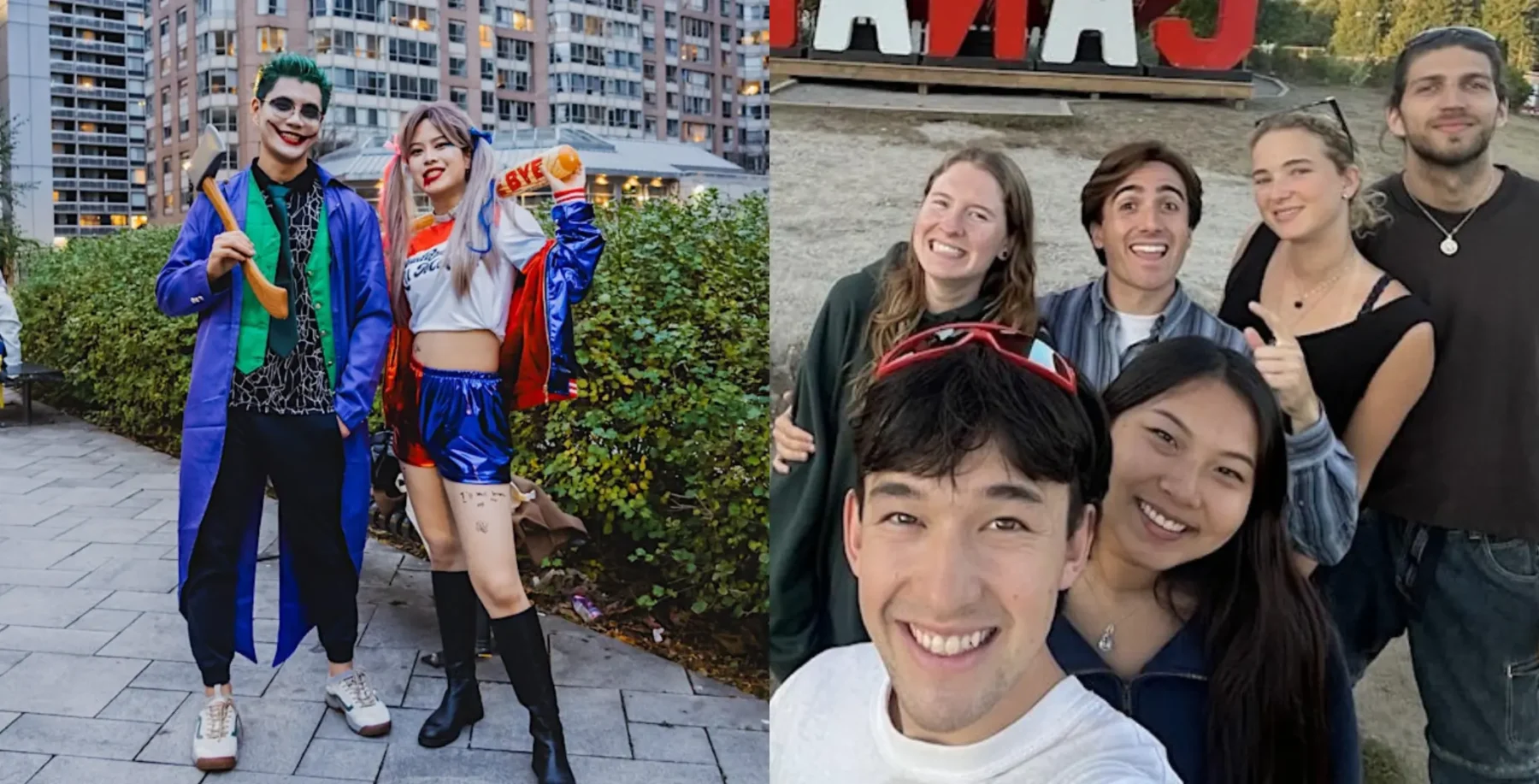

When first-time feature filmmaker Jasmin Mozaffari won a well-deserved directing trophy for Firecrackers at this year’s Canadian Screen Awards, she closed her acceptance speech with a prediction: “I think I’m one of the few women to win this award. I don’t think I’ll be the last. Just watch.”
Just what we’re watching for is hard to peg. That Mozaffari stood out as a director while her film remained unrepresented in the best motion picture category was eyebrow-raising. Only French-Canadian productions were nominated in the latter.
If this year’s awards are a litmus test for the Canadian screen industry, I would conclude that we’re a bit confused.
The industry is in upheaval. There is less space for Canadian content on cinema screens (Firecrackers is currently occupying two in Toronto), but some bandwidth is opening up on Netflix and other streaming services. Deepa Mehta was given a lifetime achievement award at the CSAs, but her generation of filmmakers who made their names in the 90s and 00s seem to be receding into the background with fewer films released years apart. Meanwhile, new voices are emerging from unexpected places and the industry is scrambling to keep up.
They’re coming from everywhere. Filmmakers are crowdfunding their way to festivals. Actors are writing their own projects. The first beneficiaries of Telefilm’s new Talent To Watch program (50 projects by first-time directors) should start hitting festivals late this year or early next.
As Canadian film shifts in a big way to expand the pool of voices that get to tell stories, we’ve rounded up actors, filmmakers and producers who are already forging ahead. We’re hoping to see their films and TV projects at big festivals like TIFF and on the CSAs nominees list next year and on more screens in between.
And we’ll be toasting these new voices on National Canadian Film Day on April 17. Join us for a free screening of Jeff Barnaby’s Rhymes For Young Ghouls at Cineplex Cinemas Yonge-Dundas at 7 pm followed by a Q&A with star Devery Jacobs. And for more National Canadian Film Day events, visit canadianfilmday.ca. RS
Kawennáhere Devery Jacobs
Kawennáhere Devery Jacobs plays a salty killer werewolf in the Netflix supernatural series The Order and recently made her debut as the cynical two-spirited hitchhiker Sam Black Crow on Prime Videos American Gods.
“For some reason, I play all these badass characters,” says Jacobs. “I blame Jeff Barnaby.”
She’s referring to the filmmaker who made us take notice by giving Jacobs her first leading role as the tough, cannabis-dealing Aila in 2013s Rhymes For Young Ghouls.
Shot in Kahnawa:ke Mohawk Territory, the Quebec reserve Jacobs grew up on, Barnaby’s period film grappled with residential school trauma through a magic realist crime drama, where tragic zombies haunt and monstrous settlers lurk. Aila was at its centre, rolling up blunts, cooking up heists and fielding the hard knocks before taking a bat to a white man’s head.
Before playing Aila, Jacobs had sporadic small roles in films and on television but didn’t really see sustained work. There aren’t endless opportunities for a queer Indigenous girl.
Instead, she planned to become a social worker. She had a part-time job at the Native Women’s Shelter of Montreal (ironically, Barnaby once worked there as a janitor) while studying youth and adult correctional intervention at John Abbott College.
“I wanted to help Indigenous people,” recalls Jacobs. “My mom grew up with social services heavily involved [in her life]. She had been in the foster care system for a brief time. She had a difficult upbringing. So that was something that I gravitated toward.”
Jacobs credits her mother as the inspiration behind her performance as Aila, the character that launched her career playing other roles heavy on badassery and side-eye.
“I’m much geekier,” says Jacobs. “I’m not mad at this archetype. Its way better than playing the flimsy victim.”
Today Jacobs is involved in more projects than I have space to list (IMDbs good for something, y’all). At the same time, she’s taking up the cause for more representation in Canadian film, particularly behind the camera.
As much as possible, Jacobs works with Indigenous directors like Janine Windolph (The Land Of Rock And Gold), Kirsten Carthew (The Sun At Midnight) and Kelton Stepanowich (The Road Behind). She’ll soon appear in Sonia Boileaus’ Rustic Oracle as well as Barnaby’s Rhymes follow-up, Blood Quantum. These films, along with Falls Around Her and Edge Of The Knife, suggest a rising tide for Indigenous filmmaking.
Yet few of these projects have the same budgets afforded to Indigenous stories directed by white filmmakers, like Indian Horse and Through Black Spruce.
Jacobs doesn’t actively avoid such projects. She admits she wouldn’t have much of a career if she did.
“The language is important when it comes to deciding whether something is an Indigenous project or not,” says Jacobs, pointing out that such classification should be reserved only for films written and directed by Indigenous creatives. “The distinction is important. That perspective shapes what kind of film it is.”
Jacobs is torn on this topic. She wants to give settler filmmakers the benefit of the doubt assuming they at least do research and hire cultural consultants. But the consultancy also strikes her as lazy.
Indigenous artists are often invited to offer advice, sign off on culturally sensitive creative decisions or speak on panels in order to assuage white guilt. An Indigenous filmmakers time can be consumed giving advice, yet those efforts rarely lead to directing opportunities.
At times, Jacobs has been hired as an actor only to be asked to give feedback to filmmakers who clearly haven’t done their homework.
“I have acted as an unpaid cultural consultant because otherwise the representation is just going to be faulty,” she says.
A project that embodies her ethos around representation is This Place, a film Jacobs is co-writing with Tamil-Canadian director Nayani Thiyagarajah and Iranian-Canadian writer Golshan Abdmoulaie.
The film, which is funded through Telefilms Talent To Watch program, is about two unlikely lovers. Jacobs will star as a half-Mohawk girl searching for her estranged Iranian father who doesn’t know she exists. She gets into a relationship with a Tamil girl, whose refugee father is on his death bed.
This Place (the title is a play on displace) was born from Thiyagarajahs interviews with Tamil-Canadians about the 2009 protests against the genocide in Sri Lanka. Somebody questioned what it meant for Tamils, driven from their land by civil war, to be protesting on stolen land. Thiyagarajah set out to unpack that question and tapped Jacobs to star and co-write.
Both the story that will end up onscreen and the one playing out behind the scenes suggest an inspiring allyship across marginalized communities.
“We don’t have the same experience but we can empathize with each other,” says Jacobs.
She describes a long and intensive writing process that is still ongoing. The trio go back and forth, checking ideas with the others and taking the time to portray the communities being represented responsibly. They’re not just assuming they know everything about their own cultures.
“We have to refer to our elders,” she says. “We have to ask. It does take time. And it takes effort. But in order to properly represent communities, thats what needs to be done.” RS

Kelly McCormack
Fans of the Toronto-produced Killjoys will recognize Kelly McCormack as Zeph, the tech-savvy space nerd who evolved into a duct-crawling, alien-invasion-thwarting bounty hunter over the course of the series. In the shows fifth and final season, airing on Space this summer, the character may even hold the key to saving the universe.
This is also more or less who McCormack is in real life: give her a challenge, shell build something that solves it. That thing might not be exactly what you pictured, but that’s a feature, not a bug.
“I’m kind of obsessed with shedding skin, and addicted to the feeling of growth,” she says. “There’s this adage: If you’re not mortified by the person you were a year ago, you’re not living right. I feel if I’m not mortified by the person I was three months ago, then I’m not making art right, in a way. So I feel like every time I say yes to something, it has to be like nothing else I’ve ever done. My whole life I’ve been at war with my own potential and my own fear that I will die before I get all the stories out of my head.”
In addition to acting in other peoples stuff last year she turned up in Letterkenny, Crawford, The Expanse and Paul Feigs A Simple Favor the Vancouver native generates plenty of her own projects. She produced and co-starred in the CBC Digital mockumentary The Neddeaus Of Duqesne Island, wrote and produced the features Play The Film and Barn Wedding and the just-wrapped Sugar Daddy, in which she co-stars opposite Colm Feore and in doing so, assembled a crew of allies in front of and behind the camera.
“We have a wicked community here,” she says. “A lot of us are on sci-fi shows because so much of it shoots here, and occasionally on Twitter I’ll tweet at Anna Hopkins or Tiio Horn or Jess Salgueiro or Mel [Scrofano] from Wynonna Earp, and fans will go, ‘Oh my God, you guys know each other?’ We don’t just know each other, we’re all in each others projects! It’s such a great community, and it’s so indicative of Toronto.
“In New York, there’s a sense of community, but it’s centred around theatres or companies,” she continues. “You get hired by a show at a theatre and then you have a common denominator for the people youre making art with. But I find that Toronto is less about the establishment you’re working for there’s this kind of ongoing community thats happening at all times.” NW

Simu Liu
Simu Liu is ready to fight someone. He’s not angry or anything. It’s just been a while since he’s had a chance to show off that particular set of skills, having spent most of the last year shooting and touring with the rest of the Kims Convenience cast.
“It seems like my life hits a new gear every two or three months,” he says. “Like, now I’m basically in the middle of a huge speaking tour not just across Canada, but across the U.S. as well.”
Liu plays prodigal son Jung in the show, working at a rental-car company and slowly patching up his fractious relationship with Paul Sun-Hyung Lee’s disapproving Appa. But the Chinese-born, Mississauga-raised actor has also racked up plenty of credits in drama and action series, appearing in Taken, Bad Blood, Blood And Water and The Expanse, and chasing feature film roles during the Kim’s hiatus. (It paid off: last month, he shot a part in Lissette Feliciano’s 60s drama Women Is Losers opposite Lorenza Izzo.)
Kims Convenience was already a hit in Canada, but the show’s release on Netflix last year has made it an international breakout and with great streaming presence comes great visibility.
“It’s been an incredible ride,” Liu says. “We got recognized in the Boston subway today, and it continued on the street. It’s just so refreshing, because growing up I certainly never had a role model that looked like me aside from like Jackie Chan or Bruce Lee, and they were always portrayed as these foreign, mystical martial artists, not relatable people. So the importance of having somebody on TV who’s just going through life and making mistakes and effing up once in a while and learning from it is tremendously important.”
Liu’s working to expand that representation, developing a romantic comedy with CBC’s digital division called Hello (Again) that will feature two Asian leads.
“I’ll be one,” he says. “I pitched to their digital team first, and they were like, ‘Can you make 10 nine-minute episodes?’ And I said, ‘Thats a feature.’ And they were like, ‘Yeah, thats not a bad idea.’ Im really excited about that, we’re just prepping our final submission, which is like 45 pages and a whole bible.”
And he’s just appeared on the 100th episode of the ABC sitcom Fresh Off The Boat, continuing the love affair between the casts of the two series and fully aware of what that sort of crossover represents.
“People who are Asian-American, Asian-Canadian, part of this community they all want some sort of an acknowledgement of the importance of this moment that were having.”
As for the fight scenes, he’ll keep himself in shape. They’ll come. NW

Elle-Máijá Tailfeathers and Kathleen Hepburn
About a year ago, Elle-Máijá Tailfeathers (left) was acting and co-directing alongside Kathleen Hepburn, on the East Vancouver set of The Body Remembers When The World Broke Open. After wrapping for the day, she jumped on the phone with NOW to have a critical conversation about Indian Horse, the residential school story adapted from Richard Wagamese’s novel into a film by white people who access budgets never afforded to Indigenous filmmakers.
“It’s yet another film about Indigenous people by non-Indigenous people for non-Indigenous people,” said Tailfeathers, with a fire in her voice. “It was made for settler audiences to have this emotional catharsis and walk away and feel like they did something.”
The Tailfeathers Im meeting today, alongside Hepburn, in a Leslieville coffee shop, is much sunnier. The discourse around Indian Horse is behind us (hopefully). Instead we can look forward to Tailfeathers’s starring role in Blood Quantum, Jeff Barnaby’s zombie-apocalypse movie about survivors mounting a last stand on a reservation, as well as her own directorial work in The Body Remembers, which recently premiered at the Berlin Film Festival.
The latter is based on Tailfeathers’s own failed attempt at helping a young and pregnant Indigenous woman (played by Violet Nelson) escape an abusive situation. Tailfeathers and Hepburn recreate the weighted encounter in real time. The film was shot with multiple 16 mm cameras to look like a single take following the actors across various locations. The effect keeps us on edge throughout the intense and guarded moments between two Indigenous women who are worlds apart, while leaving us to unpack all the social and political subtext underpinning their every exchange.
Tailfeathers directed award-winning shorts and a documentary while training at the Sundance Film Institute, the Berlinale Talents and the Hot Docs Accelerator lab. But to tackle The Body Remembers, she turned to Hepburn, who was just finishing up her devastating feature debut, Never Steady, Never Still.
Tailfeathers never questioned Hepburn’s ability to find her way into this story, even though the latter is white. Hepburn has been described to me on numerous occasions and from different people as a trusted ally to the Indigenous community.
“While sharing a studio, almost everyday I was there I was ranting about how fucked up this country is,” says Tailfeathers. “And Kathleen’s there to listen. She has a certain sensitivity and understanding that not all settlers in Canada do.”
“I don’t want to create the impression that an ally is an end position,” adds Hepburn, who over the course of our conversation prefers to hang back while Tailfeathers talks. “These stories, Indigenous stories, are the most important stories that are being told in Canada because we have so much to unlearn.” RS

Olunike Adeliyi
Two years ago, Olunike Adeliyi was in the pages of NOW over an incident at the Kingsway Theatre in which she was refused a ticket to a screening of Loving. Now she’s more likely to be on the screen than in the audience.
Adeliyi co-starred in the feature films Darken, The Prodigy and Boost (which earned her a nomination for best supporting actress at last years’ Canadian Screen Awards), and appears regularly on CBC comedies Workin’ Moms and Little Dog. She also plays Shadow Moons mother in the new season of American Gods, which dropped on Amazon Prime Video last month. (You might also have caught her onstage in Nightwood Theatre’s Her2 or Unit 102s Macbeth.)
Later this year youll see her play an immortal in the horror sequel She Never Died, which reunites her with her Darken director Audrey Cummings.
“Literally the moment I finish a project, I’ve moved on,” she says. “People say, ‘What’s your favourite project?’ and I say ‘The next one.'”
Activity leads to more activity, she says. The energy she puts into her work and into developing the relationships that produce new opportunities goes right back out again.
“I tend to focus on Black female artists,” she says, “so I stay in contact with Black writers, Black directors most of them female because the market has been a little biased for a very long time, and Black women are now really kind of owning their voice and their space in the industry.”
“I collaborate with people who can write my story or help me to tell a story that showcases people who look like me, she continues. It’s pretty awesome that once you make a name for yourself and you’re working diligently at your craft, you can elevate others and bring them up. I’m glad that I’m the tool that helps them showcase their work.”
The trick, she says, is to never to undervalue herself.
“There’s a misconception that actors are the beggars of this industry,” she says. “We are not the beggars, we are at the forefront of this creative process. We’re the ones you see, that you fall in love with, that you feel emotions with we take the brunt of a big part of the creative process. It’s only fair that we’d find our niche to really connect to each other and start making our own work.”
And the moment is ripe for what she wants to do. “We’re just having more diversity in projects, and getting to put our own stuff out,” she says. “People are starting to develop with me in mind, which I’m really honoured by. It’s so cool.” NW

Grace Glowicki
In her feature directorial debut, Tito, actor and filmmaker Grace Glowicki stars as a man stricken by a fear of the outside world. Her performance is baroque and physical she twists and lurches her tall and slender frame to physically manifest Tito’s cowering emotions while also suggesting something insidious and unknowable lurking within.
Her performance, and the film built around it, is strange, hilarious and unsettling. Tito premiered at the SXSW Film Festival in Austin last month, where it won the Adam Yauch Hornblower Award, a jury prize that, according to the festival, honours a filmmaker whose work strives to be wholly its own, without regard for norms or desire to conform.
That pretty much sums up Glowicki, an artist who leaves you with the uncanny impression that she’s especially guarded and yet putting everything out there.
The Edmonton-born, McGill University-educated multi-hyphenate moved to Toronto in 2010 to pursue acting and even made a short-lived attempt at stand-up comedy. Becoming a conventional actor wasn’t initially part of the plan, which I’m surprised to hear since it’s her standout performances in films like Cardinals and Paper Year that got my attention.
“[I began] a very independent career of working pretty much exclusively with friends,” says Glowicki, who landed roles in festival circuit fare such as Bonfire, Suck It Up, Cardinals and Glitters Wild Women less through having to audition than from networking in a community of Toronto filmmakers who help each other with projects. “It’s pretty incestuous.”
Glowicki’s Tito is born from that same support network. The budget came entirely from her filmmaking circles and friends, as did the crew.
“There were more directors than non-directors on the film set,” she says. “But in different roles. All the people working on that film are also making their own films. Helping each other out seems to be pretty common in the independent scene.”
But while there’s a collaborative nature to how films get made, Tito is still wholly a product of –Glowicki’s voice and her command over the tone and anxieties the film dredges up.
Glowicki made the movie which has not yet secured a distributor in response to the alarming number of women she knows who have dealt with sexually predatory behaviour, as well as the fear she feels just by occupying her own body. She channels those fears into her performance but as a man.
“That fear is originated in the male psyche, not in the psyche of the women who must ultimately endure it,” Glowicki explains. “I was fascinated by ideas about projection, that those who dominate or oppress others are projecting conflicts inside of themselves onto external bodies. I decided to utilize cross-gender acting to re-appropriate the experience of women-as-prey as the male creation, and the male problem that it is.” RS

Aisling Chin-Yee
In 2016, Aisling Chin-Yee was among the fierce voices in NOW’s report about the gender gap in the Canadian film industry, recounting how she had to push back against the overt and unconscious biases against women in our industry.
“We’re pretty loud-mouthed and can take up a lot of space in a room,” said the Montreal-based Rhymes For Young Ghouls producer and (subsequent) #AfterMeToo co-founder. “We’ve had to grow that type of personality to say, ‘Hey, we’re here. We’re making films. Take us seriously or get out of our fucking way.'”
Chin-Yee has a penchant for fighting words. You can see that spirit in the films she’s produced. There’s the boxing doc, Last Woman Standing Rhymes, with a bat-wielding Devery Jacobs, and The Saver, where Imajyn Cardinal plays a young orphaned girl fleeing Montreal’s Youth Protection Services and fighting to survive harsh conditions on her own.
All three feature tough, female Indigenous leads. And Rhymes is the only title among them directed by a man. Putting underrepresented voices in front of and behind the camera was Chin-Yee’s brand long before we started yelling about this shit.
Chin-Yee just completed post-production on her feature directorial debut, The Rest Of Us. The female-led project stars Heather Graham as a mother who welcomes her ex-husbands bankrupt widow (Jodi Balfour) into her home.
The story about women helping women resonated with Chin-Yee, who actually got the directing gig from her friend, Babe Nation producer Katie Nolan. Not that Chin-Yee was hired based on nepotism. Her resume proves she had what it took.
Chin-Yee’s next directorial project continues her focus on marginalized subjects. She’s collaborating with transgender artists on a hybrid doc and narrative feature about Billy Tipton, the jazz musician who was posthumously discovered to be assigned female at birth.
Chin-Yee has been fielding a lot of interest in her work as a director, finding plenty of support for her transition from producer within the filmmaking community.
“I don’t know if that’s directly related to a real shift in numbers,’ she says, noting that, overall, directing opportunities for women and marginalized groups haven’t seen a significant boost since her comments about gender parity from almost three years ago.
“[The numbers] are a little higher for white women but basically not at all for [WOC] and Indigenous women or Indigenous filmmakers in general. I’m happy with what’s happening for myself. But I cant say that its changing across the entire industry.” RS

Anna Hopkins
Anna Hopkins is a veteran of genre shows Defiance, Arrow, The Expanse and most recently Shadowhunters: The Mortal Instruments, which just dropped its third and final run of episodes on Netflix and where a very fervent fan following has developed around her character, the villainous Lilith. She’s just wrapped her first feature lead in the thriller Tin Can. She’s also been working her way toward the other side of the camera as a writer and director.
“When you’re not in control and you’re not making your own stuff, you do really get [offered] the same stuff all the time,” Hopkins says. “Making your own stuff allows people to say, ‘Wow! You do that?'”
“I know tons of actors and writers and directors in Toronto who are so versatile,” she continues. “We all have our TV work, and then we have the work we talk about when we meet up for drinks.”
Hopkins and her friend Clara Altimas a writer and director she knew coming up in Montreal moved to Toronto and formed the film collective The Same Page.
“The first little thing that we did was called Girl Couch,” Hopkins says.” It was a satirical talk show where this really vapid host interviews women from the past. We found a DP and he was like, ‘Sure, lets do it!’ It cost us zero dollars and it got us a lot of attention.” (Altimas is now a story editor on Kims Convenience and developing her first feature, Small Pond Glory, in which Hopkins will co-star.)
Last year, between shooting Shadowhunters and a stint on the Montreal-set crime drama Bad Blood, Hopkins made her first short, The Give And Take, with a BravoFACT grant. It’s a gentle sci-fi drama about two people who make a very unlikely connection over a video-game help line. (It’s now available for free on the sci-fi streaming service Dust.)
“When we got the BravoFACT [money], I was really excited about paying everybody a fair rate,” she says. “That influences the dynamic, and makes for a really positive environment. That’s the only reason I like the idea of working with money… especially for young people, who’ve been working for free so much. Thats why these grant systems are so fantastic.”
And, as often happens in the industry, one thing led to another. After working with Hopkins on Bad Blood, producer Mark Montefiore noticed her tweeting about The Give And Take.
“He was like, ‘Send me the short film!'” Hopkins says. “So I did, and he was like, ‘Come on in, let’s have a chat!’ I met with him and [producer] Beth Iley, and they were like, ‘Are you writing? What are you doing?’ And I got so inspired by that meeting I wrote a pilot and sent it to them and they loved it.” NW



